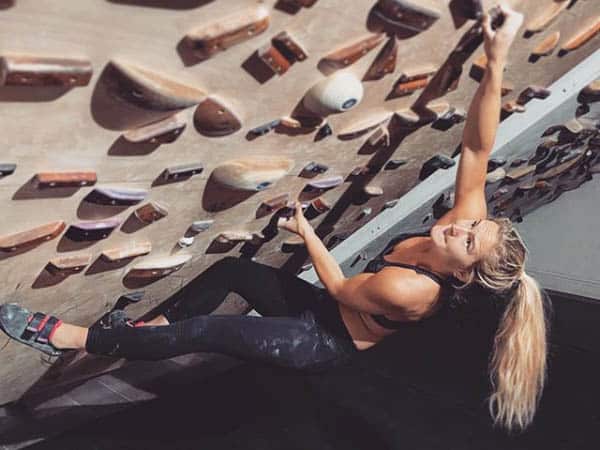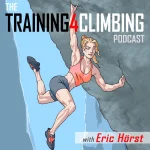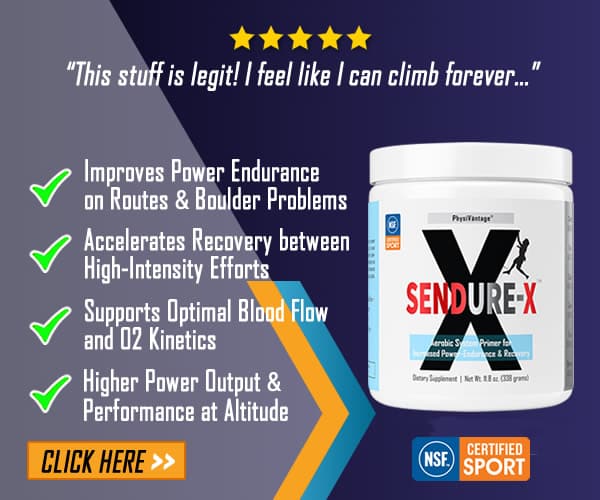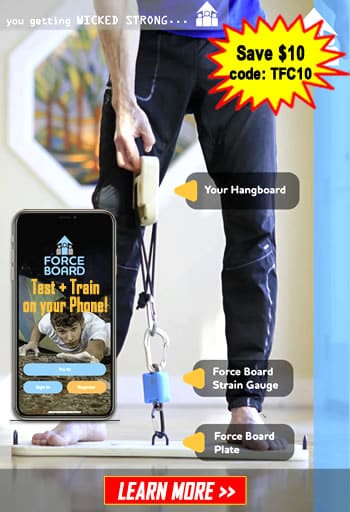Learn about the climbing training—and studying!—habits of two-time World Cup Gold Medalist, Natalia Grossman.
Striking balance between school and sport is no easy task for anyone. Climbing professionally and attending university full-time, amidst a pandemic, is even harder. Both are doable, though, with enough grit and a well-organized to-do list.
We caught up with PhysiVantage athlete, Natalia Grossman, who recently earned herself World Cup gold medals two weeks in a row in Salt Lake City, Utah. 19-year-old Grossman is not only a successful professional climber, but also a dedicated student at the University of Colorado at Boulder and manages to excel in both areas with style and grace. Here’s some insight into how she does it…
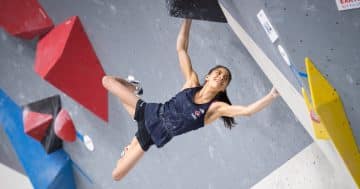
Natalia Grossman smiling her way to the send.
Q & A with Natalia Grossman:
Walk me through an average week of school/training. What does that normally look like?
Normally, I start off my day by doing an hour of schoolwork before heading to the gym. I do an off-the-wall training session twice a week, sometime between 9 and noon. In these sessions, I might hang board, campus, or work out. I then attend class online or do homework until 3:30 (depending on the day of the week) before heading to the gym from 4-7. After climbing, I try to spend time with my family and I only do school if there is something urgent or if I need to do a little more studying for an exam. On the days I don’t climb, I do school all day.
Do you create your own gym training regimen? How do you decide how to structure your training?
I have created my own climbing regimen based on all the knowledge I have gained throughout my many years of climbing. I also have received help from our team physical therapist, and he has helped me create off-the-wall strength and power workouts.
How do you strike a balance between training, school, and travel for comps?
Finding a balance between training and school can be very tough. I feel like I am constantly scrambling to find more time in the day, and there are definitely times I feel drained when I show up for training. I think what has helped me regenerate the most is spending time with my family and trying to climb with friends rather than session solo. I am also very lucky that school was online this year because it has made traveling a lot easier. In fact, I am opting to continue online next year so that I can continue to travel.
Do you think professionally climbing and competing have influenced your academic performance? For the better or worse?
I think that climbing professionally has influenced my academic performance for the better. It has taught me how to prioritize and has made me a more motivated student.
How has training and competing shaped your approach to academics?
For me, school comes first. I don’t let myself go to the gym until I feel satisfied with my academic work. I am very motivated by my climbing and this love for climbing has helped me stay on top of my schoolwork.
Have you ever felt like you had to pick between the two? How did you tackle this?
Since I love both climbing and school, I feel as though I have always been able to find a way to do both, and I have never had to pick one over the other. There are definitely times when I have had to focus more on school (when I have exams or getting ahead before traveling) and other times when I have had to focus on climbing (if a competition is coming up).
What’s been the most difficult part about balancing school and training?
The most difficult part about balancing school and training is the feeling of fatigue that I get from looking at a screen all day. It can be hard to do all my work when I am faced with sitting at a computer for hours on end. It impacts my climbing because I feel tired. If I am feeling tired, I might not be as psyched to climb and may climb poorly, which may affect my motivation in both climbing and school.
Do you cross-train at all? If so, what does that look like?
Most of my training is on the wall. However, I also hangboard to work on my finger strength, and I do power workouts to increase my general power.
Any tips for students and aspiring athletes on how to tackle academic pressure and professional-level sports?
Remember to pause and take a deep breath. Oftentimes it is very easy to feel overwhelmed. However, if you take a few minutes to write out everything you have to do, and how long each thing is going to take, you might be delighted to see that you can actually finish everything on your to-do list in the time you have.
Future goals? What’s next for you as a student and also as an athlete?
My current goal is to finish in the top ten for the 2021 bouldering World Cup circuit. This will earn my place on the US team next year, and I will be allowed to participate in all the world cups. As a student, my current goal is to finish college (hopefully a semester early) before taking a little time off to focus on climbing before attending graduate school.
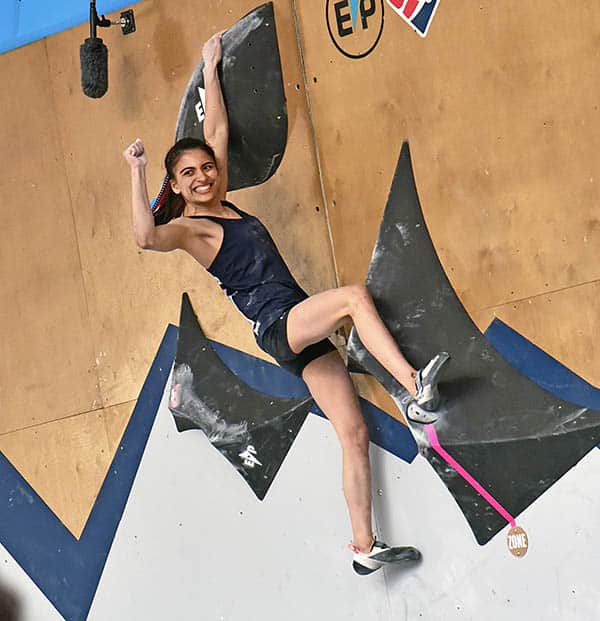
Natalia topping the fourth finals problem for World Cup gold! (Horst photo)
Copyright © 2000–2021 Training For Climbing, LLC | All Rights Reserved.
Relates Articles:
- Performance Nutrition Through the Lens of Top Pro Climbers
- Natalia Grossman Wins World Cup Gold Two Weeks in a Row



